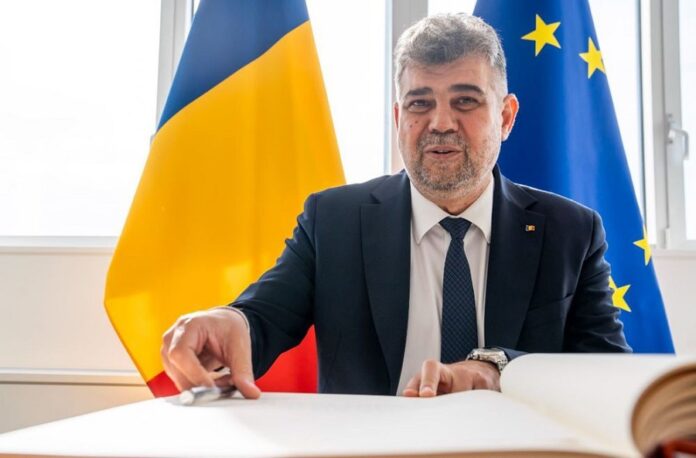The parties in Romania’s ruling coalition will swap the position of the prime minister as planned by June and may try to continue ruling together after general elections expected in late 2024, according to the future Premier, according to Bloomberg.
Marcel Ciolacu, the Social Democratic leader who’s poised to take over from Liberal Prime Minister Nicolae Ciuca under an agreement between their parties, vowed to break the cycle of political upheaval that has seen 12 cabinets come and go since 2004.
He said he’ll continue to narrow Romania’s budget deficit toward the European Union target of 3% of output. With four elections for local and national posts expected next year, Ciolacu vowed to avoid the type of pre-vote spending pursued by Hungarian Prime Minister Viktor Orban that has ballooned the fiscal shortfall in Romania’s neighbor, triggered a rating downgrade and hurt the economy.
“I understand the fear of elections, especially since we can see what happened in Hungary with the surge in borrowing costs triggered by purely electoral measures,” Ciolacu said in an interview from his office in Bucharest on Wednesday. “That’s why I want us to find stability inside the current coalition.”
Ciolacu’s party has drawn much ire from voters and investors in the past because of big-spending policies including large hikes to pensions and child benefits that almost cost Romania its investment grade credit rating.
When his Social Democrats and the Liberals formed their coalition — and their agreement to swap the premiership — in 2021, it ended years of an arch-rivalry in which they fought over everything from corruption allegations to economic priorities.
Backed by a two-thirds majority in parliament that also includes an ethnic-Hungarian party, the government has since agreed on sweeping policies to shield people and businesses from the impact of the pandemic and Europe’s energy crisis, as well as a windfall tax on some industries to pay for it.
Ciolacu pledged to continue cooperation, with a focus on making the most of about 80 billion euros in EU funds for the rest of this decade. That includes sending two payment requests to tap funds from the EU’s post-pandemic aid program “because they are paramount to the country’s economic stability,” he said.
Ciolacu also pledged to continue efforts to improve Romania’s sovereign credit rating, from the current lowest investment grade. The two parties may consider a political alliance ahead of elections, which delivers a longer-term stability, he added.
The rotation of the prime minister’s post “will take place around the date we agreed, the end of May, of course with a certain margin because we don’t want it to harm in any way the government’s activity,” Ciolacu said.


